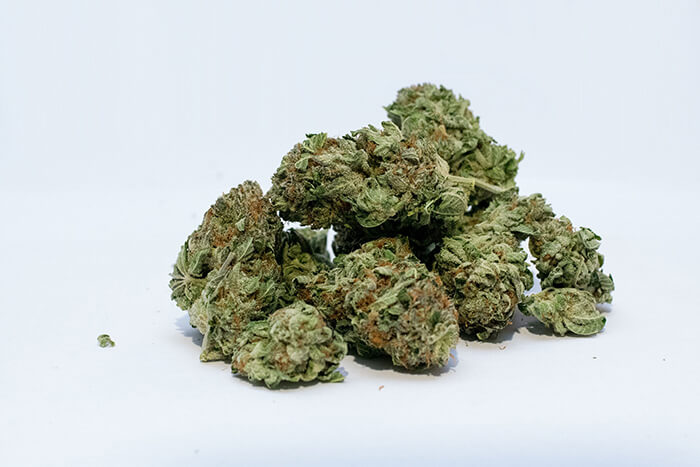
What’s The Best Model For Ending Cannabis Prohibition?

The calls for cannabis laws to be relaxed are growing ever louder, and while many countries have either decriminalised or legalised marijuana in recent years, there is still a great deal of uncertainty regarding how to make the transition to a post-prohibition world.
As such, there remains a pressing need for a thorough analysis of the benefits and drawbacks of the various models currently in place across the globe – as well as some that no one has been brave enough to try yet.
Decriminalisation
Cannabis has been decriminalised in the Netherlands, Chile, Portugal, parts of Australia and many other locations worldwide. What this means is that possession is not a criminal offence, so being caught with cannabis can’t lead to jail time or a criminal record.
However, other penalties and forfeits – most commonly fines – can still be applied, so it would be a bit of stretch to say that marijuana is ‘allowed’ in these countries. That said, it’s a big step in the right direction as it means that users don’t have to face the stigma of being labeled criminals, and can access treatment when needed. On the downside, decriminalisation doesn’t allow for the sale of marijuana, so does nothing to tackle the illicit market and the huge amount of harm it causes to communities.
Cannabis Social Clubs
Cannabis Social Clubs (CSCs) originated in Spain, where marijuana possession has never been a criminal offence. Yet when a new law was introduced in the early 1990s imposing heavy fines on those caught smoking in public, people began to form CSCs in order to provide a safe place to cultivate and consume cannabis.
Regulations vary across Spain, although a good place to begin is Catalonia, which recently passed a law allowing CSCs to grow up to 150kg of cannabis per year. These clubs also became legal in Uruguay in 2014, where each CSC is allowed to cultivate up to 99 plants and have a maximum of 45 members, each of whom can buy 40g of marijuana per month.
CSCs help to reduce harms by placing quotas on the amount that members can buy, and by controlling the quality of the drug itself, all of which is grown on-site. Some regions also have laws ensuring these clubs are not within close proximity to a school, in order to protect youngsters.
Legal Regulation
Uruguay became the first country to completely legalise cannabis in 2013, and several US states have since followed suit. Aside from obtaining their cannabis from CSCs, Uruguayans can also register to buy it over the counter from their local pharmacy, where they must provide a thumbprint in order to prove their identity.
Legal regulation means that cannabis can be cultivated and sold by licensed outlets, eliminating the black market and allowing governments to regulate the quality of the drug.
Eight US states have now legalised cannabis, though laws and regulations vary from state to state. In Nevada, for instance, individuals over the age of 21 are permitted to carry up to an ounce of cannabis, purchased from a licensed dispensary. In Colorado, meanwhile, it is legal to cultivate up to six cannabis plants, provided no more than three are flowering at any one time.
Confusingly, however, cannabis remains illegal at the federal level in the US, which makes things complicated for those living in states that have relaxed marijauna laws. For example, consuming cannabis in national parks remains a felony in these states, because these are all federal land. Furthermore, because banks must comply with federal law, they can’t take any money that comes from cannabis, even in states where this is legal.
The Beckley Foundation’s policy team will shortly release an in-depth assessment of all the possible pathways towards ending the prohibition of cannabis, analysing the costs and benefits of each. We are strongly in favour of legal regulation, as this helps to protect public safety by ensuring the quality of drugs is strictly controlled, thereby eliminating the risk of people unwittingly consuming ultra-potent strains, some of which have been linked to psychosis.
The establishment of legal markets also allows governments to take control of the cannabis trade, raising billion of dollars in taxes while simultaneously doing away with the needless criminalisation and stigmatisation of non-violent cannabis users, many of whom are self-medicating for chronic pain or other debilitating conditions.
Words: Benjamin Taub
Podcast
- All
Links
- All
Support
- All
BIPRP
- All
Science Talk
- All
Amanda's Talks
- All
- Video Talk
- Featured
- 2016 Onwards
- 2011-2015
- 2010 and Earlier
- Science Talk
- Policy Talk
One-pager
- All
Music
- All
Amanda Feilding
- All
Events
- All
Highlights
- All
Psilocybin for Depression
- All
Current
- All
Category
- All
- Science
- Policy
- Culture
Substance/Method
- All
- Opiates
- Novel Psychoactive Substances
- Meditation
- Trepanation
- LSD
- Psilocybin
- Cannabis/cannabinoids
- Ayahuasca/DMT
- Coca/Cocaine
- MDMA
Collaboration
- All
- Beckley/Brazil Research Programme
- Beckley/Maastricht Research Programme
- Exeter University
- ICEERS
- Beckley/Sant Pau Research Programme
- University College London
- New York University
- Cardiff University
- Madrid Computense University
- Ethnobotanicals Research Programme
- Freiburg University
- Medical Office for Psychiatry and Psychotherapy, Solothurn
- Beckley/Sechenov Institute Research programme
- Hannover Medical School
- Beckley/Imperial Research Programme
- King's College London
- Johns Hopkins University
Clinical Application
- All
- Depression
- Addictions
- Anxiety
- Psychosis
- PTSD
- Cancer
- Cluster Headaches
Policy Focus
- All
- Policy Reports
- Advisory Work
- Seminar Series
- Advocacy/Campaigns
Type of publication
- All
- Original research
- Report
- Review
- Opinion/Correspondence
- Book
- Book chapter
- Conference abstract
- Petition/campaign
Search type


